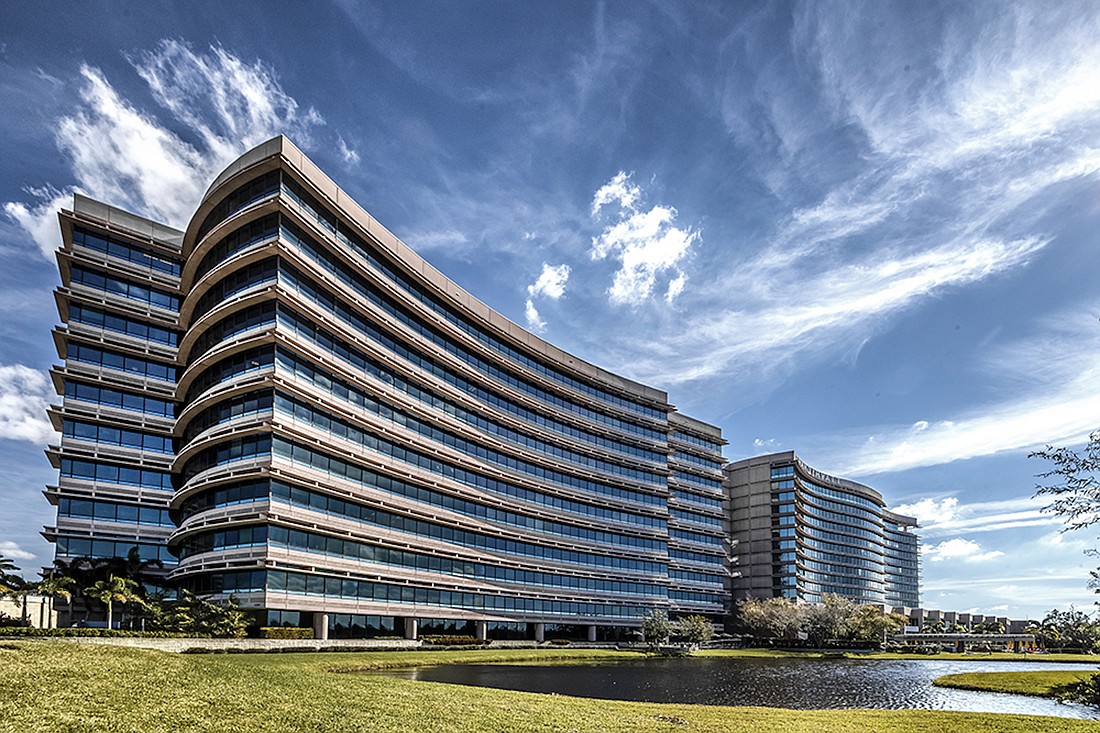- April 11, 2025
-
-
Loading

Loading

Despite significant hospitality development throughout the Gulf Coast, one of the nation’s leading hotel consultants and developers believes the region – and especially the Tampa Bay area – is poised to grow further in terms of overall keys over the next several years.
Lou Plasencia, founder and CEO of Tampa-based The Plasencia Group, says employment and population growth, coupled with an increased number of tourist attractions, visitor amenities and the ability of lodging operators to hike room rates, will drive further development.
“Very few markets in the U.S. are now seeing positive (revenue per available room) growth,” says Plasencia, a former Hyatt Hotels Corp. executive who founded the Plasencia Group in 1993. “But by contrast, you look at Tampa and St. Petersburg, they’re in the top three or four nationally, and that hasn’t faltered for several years.
"Additionally, headed forward, the ability by owners and operators to raise room rates here --because our base has been so low compared to many cities – is greater than anywhere in the country,” he adds. “We’re still lower in regards to rates, on a pro rata basis, than any other U.S. market. There’s room here for a lot of positive growth still in (average daily rates). Oddly enough, we’re in the catbird’s seat.”
Though Tampa Bay has boosted hotel inventory in recent years with new properties on Clearwater Beach and in downtown Tampa with the addition of a JW Marriott and a five-star Edition by Marriott, Sarasota has added four new hotels downtown, including a Westin, and Fort Myers is preparing to open a major new full-service hotel in its urban core, Plasencia argues that the region, as a whole, continues to be underserved by hotel product.
“In places like Dallas, Washington, D.C., Nashville, the amount of new hotel development is significant, higher by double digits than many other places,” he says. “So while Tampa and the Gulf Coast have had new properties open, it’s on a much lower percentage basis than other Top 25 markets. It’s a very unique situation. From Naples to Clearwater Beach, it’s really one of the bright spots in the entire country for hotel supply.”
That relative lack of new inventory, together with steady room rates despite new supply in most cases, should bolster further development throughout the Gulf Coast, Plasencia says.
“There are a lot of hotel developers looking in this area,” Plasencia says. “And they’re drawn here, in part, by the dearth of a lot of brands. Where’s the Ritz-Carlton in Tampa, for instance? Where’s the Four Seasons? Virgin, St. Regis, Omni – none of those brands are here now. They need a presence here, too, because they want to keep their customers when they travel here from places like Dallas.”
In Naples, Plasencia expects more development and mid-tier properties to convert to higher-quality and more upscale brands.
In Sarasota and on Longboat Key, Plasencia contends new development to occur – despite the addition of more than 1,000 new hotel rooms downtown since 2015 – on Lido Beach and at the site of the former Colony Beach & Tennis Resort.
On St. Pete Beach and Clearwater Beach, look for new resorts to replace aging properties, and in both downtown St. Petersburg and Tampa, Plasencia thinks new hotels will be opened – including at least one additional luxury property in downtown Tampa. The city is preparing for the opening of its first five-star hotel, the Edition by Marriott, in Strategic Property Partners’ $3 billion Water Street Tampa project.
Perhaps the only impediments that Plasencia sees to further growth are the lack of labor, insurance costs, property and other taxes and costs to renovate properties to stay relevant and current.
Even there, however, Plasencia expects multimillion dollar renovations to properties such as the Vinoy Renaissance Resort & Golf Club in St. Petersburg, the Hard Rock Hotel & Casino in Tampa and the JW Marriott Marco Island Beach Resort, among others, will continue.
“So long as the cost of capital is low and money is available – and capital is very fluid right now – things will remain steady, I believe,” Plasencia says. “And it’s no wonder. Hotels right now are producing better returns than comparable office buildings, retail centers or even industrial spaces.”
As a result, Plasencia also expects investment purchases — of properties like the Ritz-Carlton Sarasota, the Grand Hyatt Tampa Bay, the Tampa Downtown Hilton or the Hyatt Regency Coconut Point Resort & Spa, to name a few – will also continue in 2020 as investors clamor for yield.
He expects more upscale and full-service properties to remain attractive to investors because food and beverage and other amenities can be honed to generate profits, and because of Florida’s irreplaceable location as a tourist and business destination.
“We’re blessed to live in an area with amazing amenities, well-run airports and a great climate, and we’re surrounded by water,” Plasencia says.